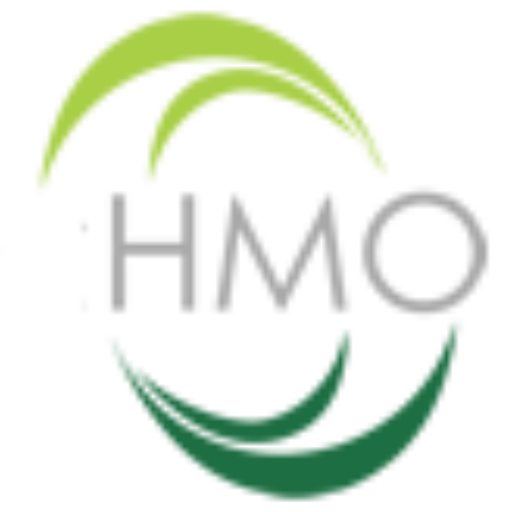
Trends and Opportunities in Nigeria’s Health Sector.

Introduction
The Nigerian healthcare and health insurance industry is evolving rapidly, driven by government reforms, technological innovations, and a growing awareness of the need for accessible healthcare. As the country moves towards Universal Health Coverage (UHC), new trends are shaping the sector. This blog explores the key trends, challenges, and opportunities in Nigeria’s health insurance landscape.
Key Trends in Nigeria’s Health Insurance Sector
1. Mandatory Health Insurance for All Nigerians
The National Health Insurance Authority (NHIA) Act, signed into law in May 2022, mandates health insurance for all Nigerians and legal residents. This law is a significant step toward ensuring wider healthcare coverage, particularly for the estimated 83 million Nigerians who cannot afford private insurance. The implementation of this mandate will require improved infrastructure, increased public awareness, and effective regulatory oversight.
2. Low Health Insurance Penetration Rates
Despite the introduction of mandatory health insurance, the uptake remains low. Currently, less than 10% of Nigeria’s population is covered by any form of health insurance. The reasons include a lack of trust in the system, limited awareness, and affordability concerns. To bridge this gap, government agencies and private HMOs must work together to educate Nigerians on the benefits of enrolling in health insurance plans.
3. Diversification of Health Insurance Products
To appeal to different demographics, insurers are increasingly offering customized plans tailored to various income levels and needs. Some providers now offer micro-health insurance products, allowing Nigerians to access healthcare at a lower cost. These flexible plans can help boost the adoption of health insurance among low-income earners and informal sector workers.
4. Government’s Push for Universal Health Coverage (UHC)
The government’s commitment to UHC is evident through various initiatives, including the establishment of a basic minimum package of healthcare services. With proper implementation, this initiative could ensure that every Nigerian, regardless of income level, has access to essential healthcare services.
5. Technological Innovations in Health Insurance
Technology is playing a crucial role in expanding health insurance accessibility. Digital platforms are now enabling seamless registration, premium payments, and claims processing. AI-powered recommendation systems help individuals choose the most suitable health insurance plans based on their healthcare needs and financial status.
Challenges Facing Nigeria’s Health Insurance Sector
1. Poor Public Awareness and Trust Issues
Many Nigerians remain unaware of how health insurance works and its benefits. Additionally, concerns over fraud, inefficiency, and poor service delivery discourage people from enrolling in insurance plans. Restoring public trust requires transparency, improved service delivery, and consistent communication from insurers.
2. High Cost of Quality Healthcare
Many Nigerians still find health insurance unaffordable, and even those covered often face out-of-pocket expenses due to exclusions in their policies. This makes it difficult for the average Nigerian to enjoy comprehensive healthcare coverage.
3. Limited Healthcare Infrastructure
Nigeria’s healthcare system faces a shortage of well-equipped hospitals, medical personnel, and essential drugs. Even with health insurance, enrollees may not receive the quality of care they expect due to infrastructural challenges.
4. Regulatory and Implementation Bottlenecks
Despite the introduction of the NHIA Act, effective implementation remains a challenge. The transition from voluntary to mandatory health insurance requires strong regulatory frameworks and adequate funding.
Opportunities for Growth in Nigeria’s Health Insurance Industry
1. Increased Adoption of Digital Health Solutions
Technology presents a massive opportunity for insurers to reach more people. Mobile apps, AI-powered recommendations, and digital payments can improve accessibility, allowing Nigerians to enroll in health insurance from anywhere.
2. Strategic Partnerships with Private Sector and NGOs
Collaboration between health insurance providers, private hospitals, and non-governmental organizations can help improve healthcare access and affordability. Such partnerships can facilitate the rollout of subsidized health plans, particularly for low-income communities.
3. Expansion of Micro-Health Insurance Plans
Micro-insurance is emerging as a cost-effective way to provide healthcare coverage to informal sector workers and low-income earners. By offering low-cost premium plans, insurers can significantly increase health insurance adoption.
4. Improved Government Support and Policy Implementation
For mandatory health insurance to succeed, the government must ensure proper enforcement of regulations, increase funding, and strengthen healthcare infrastructure. Ensuring the effective rollout of the NHIA Act will be crucial for achieving universal health coverage.
Conclusion
The Nigerian health insurance sector is at a pivotal moment. While challenges such as low penetration rates, public distrust, and infrastructure gaps persist, the adoption of technology, regulatory reforms, and innovative health insurance products can drive significant improvements. By addressing these challenges and leveraging opportunities, Nigeria can build a more inclusive and efficient healthcare system, ultimately improving the well-being of its citizens.
Are you ready to take control of your health? Explore affordable health insurance options today and secure your future!



